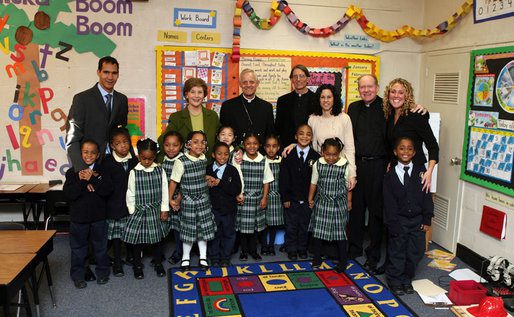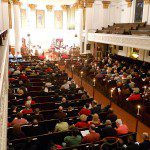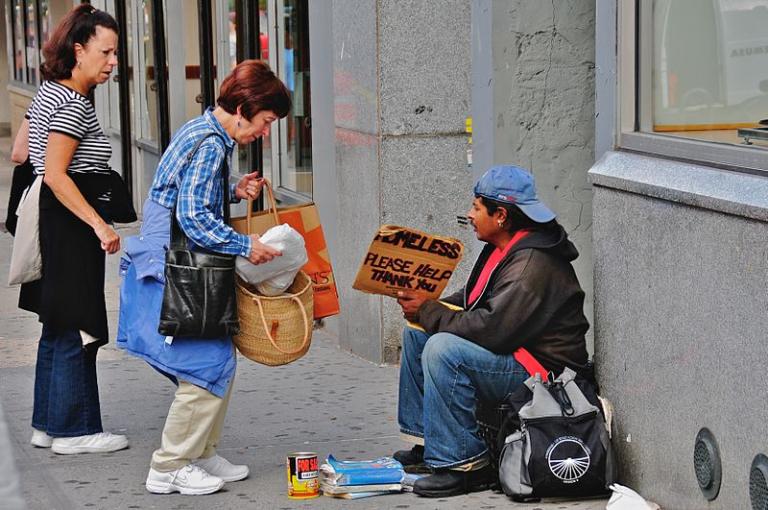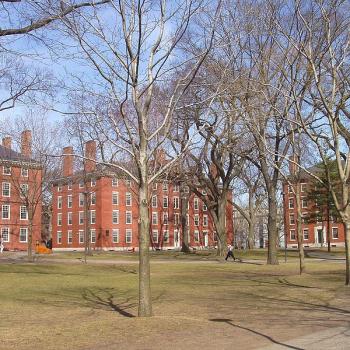
So in my twitter feed today was a New York Times editorial lamenting the benefit provided to private school families, “How the Republican Tax Plan Uses School Savings to Hurt States.” The claim: the new tax bill allows families to use 529 plan savings on not just university tuition, but tuition at the elementary and secondary level as well, or for homeschool supplies. With respect to federal taxes, it’s not a big deal: the benefit to families consists of, Roth IRA-like, not having taxes due on the investment income. Few families would save much in the first few years of a child’s life, to have investment income by the time they reach elementary school age. 33 states, however, allow the entire contribution to be tax-deductible; a family in one of these states could pay for their private school tuition with before-tax income, saving, at least, on state taxes. This, the author says, is a terrible thing, because the forgone tax revenue will hurt public schools.
Could those states simply change their own laws, so that only amounts withdrawn for university or trade school tuition are tax-free, and withdrawals for other purposes are only tax-deferred? I’m not a tax expert. But even if it’s not possible, it seems to me that the hand-wringing about private schools is coming from a warped, upper-class perspective.
It seems to me that these folks are thinking of exclusive private schools — e.g., the Sidwell Friends of their neighborhood — where parents pay $30,000 in tuition or more, for luxurious campuses, riding lessons, extra-small class sizes, teachers with Ph.D.s, organic lunches, and so on.
But, here in flyover country, “private schools” primarily mean parochial schools. In fact, according to the Council for American Private Education, citing a report, “Characteristics of Private Schools in the United States: Results From the 2013–14 Private School Universe Survey,” produced by the Department of Education, nearly 80% of all private schools are religious schools. To be sure, strictly speaking, Sidwell Friends is nominally a “religious school” — sponsored by the Quakers — as is that nominally Catholic school in Marin County, California, that made the news for discarding their religious statues so as to not upset non-Catholics, but the bulk of these schools are schools that working parents seek out to provide their children with an education that includes their religious values or, in the case of poor neighborhoods, provides an education they have more confidence in than local public schools.
These are parents that sacrifice to afford tuition, and take on the expectation to volunteer in all manner of ways that, at a public school, would be unnecessary (fundraising) or handled by professionals (the library helpers, the pizza day helpers, and so on). In better-off neighborhoods, they forgo the luxuries of their local public schools — everything from extensive technology spending to more extracurricular opportunities, to special programs like dual language learning. In poorer neighborhoods, as much as those parents are castigated for not properly balancing out the underachieving public school kids, with their own higher-achieving children, they benefit the neighborhood in general — without a parochial school option, those same neighborhoods (especially in areas without charter or magnet school options) would lose those middle-class families entirely.
And these parents save their school districts an incredible sum of money, by the fact that they pay property taxes just like everyone else, but their children don’t take up space in the public schools. The New York Times article reported that there are 465,000 private school students in New York, and that the potential tax deduction would lead to a loss of $3 billion in tax base (or maybe $200 million in actual lost tax collection, depending on the income level of those taxpayers, given the progressive tax rates of the state). That’s an implied $6,500 per student, if the author’s numbers are correct — far less than the more than $20,000 the state spends per student on public school students. Even giving that tuition a state tax deduction, it’s still a win for the state.
All the whining about how parents have an obligation to send their kids to public schools and volunteer there? It’s irrelevant in suburban schools where they don’t need the help, and, in cities, it’s unfair to ask a parent to send their kid to a struggling school, so as to (theoretically) benefit the student body in general, at the expense of their own child’s education. Besides which, don’t get me started on the fact that the complainers are themselves likely to live in upscale neighborhoods where the local public schools are so upscale that they rival private schools in their spending and amenities.
So I’ve really had it with complaints that public school families are, as a group, acting selfishly and against the common good.
Image: LB. Visit to Holy Redeemer Catholic School. https://georgewbush-whitehouse.archives.gov/news/releases/2008/01/images/20080130_p013008sc-0066-515h.html












